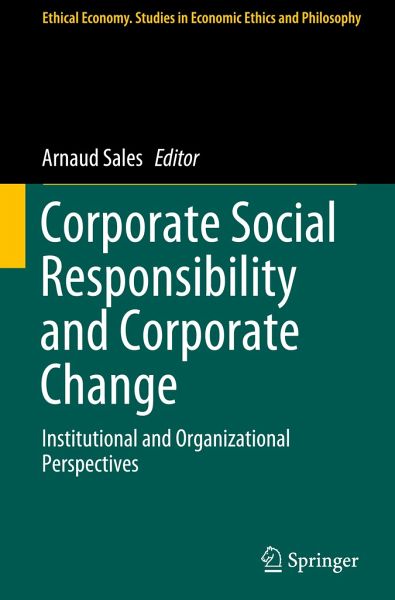
Corporate Social Responsibility and Corporate Change
Institutional and Organizational Perspectives
Herausgegeben: Sales, Arnaud

PAYBACK Punkte
49 °P sammeln!
This wide-ranging book examines the new dynamics of corporate social responsibility (CSR) and the impact they have had on the transformation of business corporations. Written by an international group of distinguished experts in management and organization studies, economics and sociology, the book leads one to theoretically and practically rethink CSR, a movement that has developed into a strong and rich institutional domain since the mid 1990s. Through 14 chapters, the book shows the complexity, diversity and progression of the institutional work performed by a large number of individual and...
This wide-ranging book examines the new dynamics of corporate social responsibility (CSR) and the impact they have had on the transformation of business corporations. Written by an international group of distinguished experts in management and organization studies, economics and sociology, the book leads one to theoretically and practically rethink CSR, a movement that has developed into a strong and rich institutional domain since the mid 1990s. Through 14 chapters, the book shows the complexity, diversity and progression of the institutional work performed by a large number of individual and organizational actors in specialized networks to develop this strategic field. Central to this book are: the core issues associated with the field of CSR; recent advances in the development, dissemination and implementation of public and private standards of social responsibility; the pressing challenges of developing sustainable strategies of value creation in the face of global warming and underdevelopment; and finally, examples of how CSR has been implemented and institutionalized within business organizations with special attention to the role played by a variety of social actors in organizational change. Conceived as a movement, corporate social responsibility spearheads a transformation project challenging traditional and outmoded forms of corporate governance that frequently pose troublesome ethical issues. From this standpoint, Corporate Social Responsibility and Corporate Change will serve as a reference point for academics, researchers, managers and practitioners.












